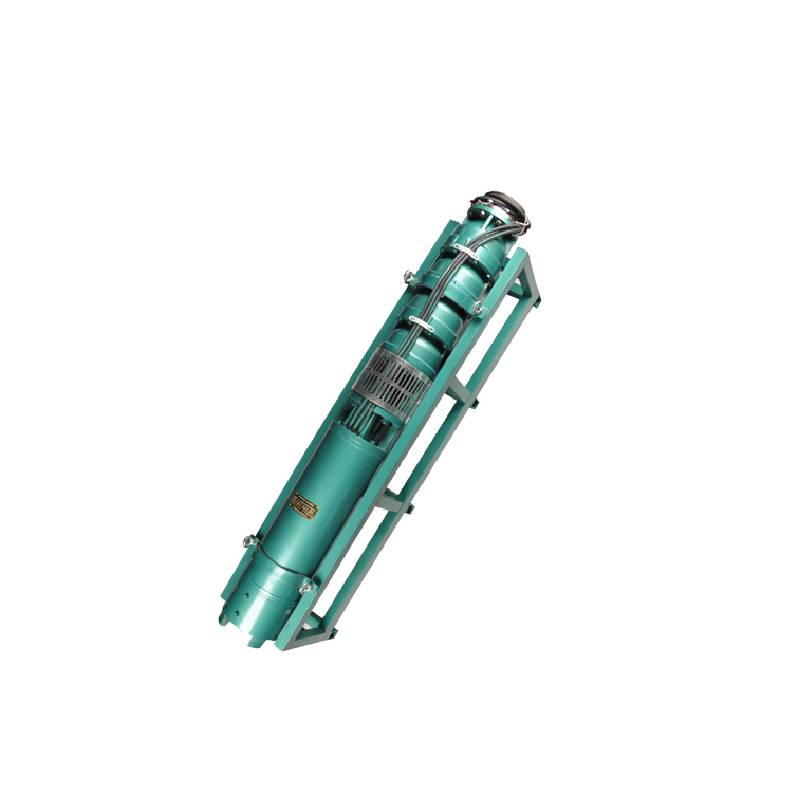Aug . 13, 2024 13:56 Back to list
Versatile Compact Submersible Pump for Efficient Water Removal and Easy Portability in Various Applications
The Versatility and Efficiency of Portable Submersible Pumps
Portable submersible pumps are essential tools in various industries, from construction to agriculture and municipal services. These devices are designed for pumping fluids from below the surface, making them invaluable in applications such as dewatering, sewage management, and agricultural irrigation. Their compact design, ease of transportation, and operational efficiency contribute to their widespread use.
Design and Features
At the heart of every portable submersible pump is a waterproof motor encased in a durable housing. This design allows the pump to operate while submerged in water, minimizing the risk of damage from environmental factors. Most models are equipped with a sturdy impeller that effectively moves water while handling solids, making them suitable for a wide range of applications.
One of the key features of these pumps is their portability. Lightweight designs, often equipped with handles or frames, make it easy for operators to transport them to various job sites without the need for heavy machinery. Additionally, a wide range of power options—including electric, diesel, and gasoline-powered models—means that users can choose the pump that best suits their needs based on availability and operational requirements.
Applications
1. Construction Sites One of the most common uses for portable submersible pumps is in construction. These pumps efficiently remove excess water from excavations, foundations, and trenches, enabling workers to continue their tasks without delay. The ability to handle muddy or debris-laden water makes them ideal for such environments.
2. Agriculture Farmers utilize portable submersible pumps for irrigation purposes. These pumps can draw water from wells or ponds, delivering it directly to the fields. Their ability to manage large volumes of water quickly helps improve crop yields, especially in areas with inconsistent rainfall.
portable submersible pump

3. Flood Control and Drainage In areas prone to flooding, these pumps are crucial for managing stormwater and preventing water damage. By quickly draining floodwaters, they help protect properties, roads, and infrastructure from the devastating effects of flooding.
4. Wastewater Management Portable submersible pumps are also employed in sewage systems to transport wastewater to treatment facilities. Their ability to handle solid particles within the waste makes them particularly effective in these settings.
Advantages
The benefits of using portable submersible pumps extend beyond their versatility and ease of use. They are designed for energy efficiency, with many models equipped with features that minimize power consumption without compromising performance. This makes them cost-effective tools for both temporary and long-term projects.
Moreover, their operation is generally straightforward, requiring minimal training for users. This accessibility allows a diverse range of individuals, from professionals to DIY enthusiasts, to employ them effectively in various situations.
Conclusion
In conclusion, portable submersible pumps play a vital role in numerous industries, providing reliable performance in water management tasks. Their design, combined with portability and efficiency, makes them indispensable for construction, agricultural, flood control, and wastewater applications. As technology progresses, we can expect to see further enhancements in their capabilities, making them even more efficient and user-friendly. Whether you're facing an emergency or simply managing routine tasks, a portable submersible pump could very well be the solution you need to tackle water challenges effectively.
-
Submersible Water Pump: The Efficient 'Power Pioneer' of the Underwater World
NewsJul.01,2025
-
Submersible Pond Pump: The Hidden Guardian of Water Landscape Ecology
NewsJul.01,2025
-
Stainless Well Pump: A Reliable and Durable Pumping Main Force
NewsJul.01,2025
-
Stainless Steel Submersible Pump: An Efficient and Versatile Tool for Underwater Operations
NewsJul.01,2025
-
Deep Well Submersible Pump: An Efficient 'Sucker' of Groundwater Sources
NewsJul.01,2025
-
Deep Water Well Pump: An Efficient 'Sucker' of Groundwater Sources
NewsJul.01,2025
-
 Submersible Water Pump: The Efficient 'Power Pioneer' of the Underwater WorldIn the field of hydraulic equipment, the Submersible Water Pump has become the core equipment for underwater operations and water resource transportation due to its unique design and excellent performance.Detail
Submersible Water Pump: The Efficient 'Power Pioneer' of the Underwater WorldIn the field of hydraulic equipment, the Submersible Water Pump has become the core equipment for underwater operations and water resource transportation due to its unique design and excellent performance.Detail -
 Submersible Pond Pump: The Hidden Guardian of Water Landscape EcologyIn courtyard landscapes, ecological ponds, and even small-scale water conservancy projects, there is a silent yet indispensable equipment - the Submersible Pond Pump.Detail
Submersible Pond Pump: The Hidden Guardian of Water Landscape EcologyIn courtyard landscapes, ecological ponds, and even small-scale water conservancy projects, there is a silent yet indispensable equipment - the Submersible Pond Pump.Detail -
 Stainless Well Pump: A Reliable and Durable Pumping Main ForceIn the field of water resource transportation, Stainless Well Pump has become the core equipment for various pumping scenarios with its excellent performance and reliable quality.Detail
Stainless Well Pump: A Reliable and Durable Pumping Main ForceIn the field of water resource transportation, Stainless Well Pump has become the core equipment for various pumping scenarios with its excellent performance and reliable quality.Detail
